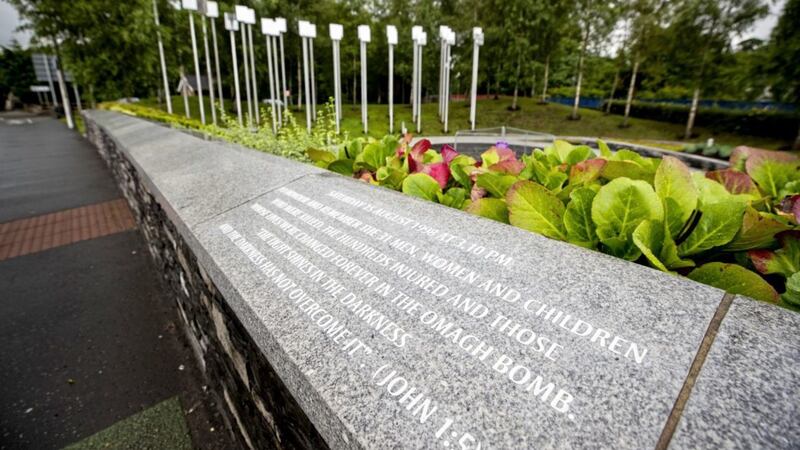THE people responsible for the Omagh bombing were those who made the bomb, transported it and left it in a busy street on a warm summer’s day. They carry the blame for what was a cowardly and heartless act.
While it is important to condemn those responsible, justice for the victims and their families requires us to also try to explain what happened.
In 2018 former Police Ombudsman Nuala O’Loan said the bombing could have been prevented. She called for a public inquiry.
Last week a High Court judge found “plausible arguments” that there was “a real prospect” of preventing the bombing. He said it met the threshold under Article 2 of the European Convention of Human Rights to require an investigation of those allegations.
Although both are respected public figures, both could be wrong. Maybe nothing more could have been done, or perhaps there were genuine errors which allowed the bombing to go undetected. But the evidence-based opinions of both people mean that their views cannot be easily dismissed.
This raises two questions: who allegedly failed to prevent the bombing and why would they do that?
In view of the political sensitivity at the time, British intelligence was almost certainly involved in monitoring the bombers, presumably under close supervision from the Blair government.
There are two possible reasons why they would not stop the bomb, although they are unlikely to have foreseen the scale of Omagh’s carnage and casualties.
The first was to protect an informer(s) within the Real IRA.
It may sound repulsive that a state agency should allow innocent people to die, but intelligence agencies do not exist to do what is morally right. They do the government’s dirty work, as evidenced by Stakeknife’s victims and the countless Catholics whose lives could have been saved by information from loyalist informers.
The second possible explanation is political.
The explosion came four months after the Good Friday Agreement, while Stormont was still in shadow form. For republicans this was a re-run of the post-Treaty situation in 1922, when the IRA split, leading to civil war. Although the 1998 IRA leadership was intent on avoiding a similar split, about 150 key IRA members opposed the Agreement.
They were largely militarists with limited political ability, which meant they only knew to continue the IRA’s bombing campaign. They had support, or at least sympathy, from a sizeable section of the republican community, because whereas the IRA in 1922 attacked Free State forces, in 1998 they merely continued the IRA campaign.
Republican defeat in the Civil War was accelerated by British intervention. When the anti-Treaty IRA took a stand in Dublin’s Four Courts, the British gave the Free State Army 18-pound field guns to bombard the republican position. It effectively ended the Civil War.
On that occasion, anti-Agreement forces emerged as victims, heroic in defeat and ready to carry on the fight at a later date (which, ironically, was the basis for the PIRA’s formation in 1969).
The Omagh bomb ended the credibility of modern anti-Agreement republicans, not by having the British bombard them, but by allowing them to disgrace themselves. If British intelligence allowed the Omagh bombing to go ahead, it can be regarded as the Four Courts moment of the modern troubles.
Anti-Agreement republicans could not now be seen as victims. They were perpetrators and SF could not only enter Stormont, they were propelled into it by public revulsion at the explosion. The British (and Irish) governments certainly had the political motive to allow the anti-Agreement factions to destroy themselves.
A fortnight later Gerry Adams declared that violence was “over, done with and gone”. The modern civil war had been won, although we do not know what role, if any, the British played in it.
That’s why we need an independent public inquiry. If the British government refuses, it would be reasonable to ask if they have something to hide. Informed opinion so far suggests they have.








